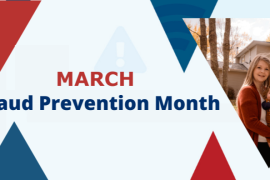- Up to 72% of employers block malware and adult websites.
- Phishing websites are blocked by 70% of employers, while gambling ones – by 43%.
- IT managers in North America restrict their employees from eight website categories on average.
According to data collected by the cybersecurity company NordLayer, a significant portion of employers (72%) block malicious and adult websites. Malicious websites can pose severe security threats by spreading malware, while adult websites are often restricted due to concerns over inappropriate content and potential productivity loss. Gambling sites are blocked by 43% of employers, likely due to concerns over addiction and productivity loss.
Research shows that the Domain Name System (DNS) filtering feature is also used for blocking phishing, cryptojacking, illegal, and DDoS as a Service (DaaS) websites. This way, employers try to protect their networks and systems from cyber threats and illegal activities.
“In today’s threat landscape, where cyberattacks are becoming increasingly sophisticated, DNS filtering plays a pivotal role in safeguarding sensitive data, maintaining regulatory compliance, and preserving the integrity of organizational networks,” says Carlos Salas, a cybersecurity expert at NordLayer.
Employers seek to maintain a professional work environment
Besides just blocking adult websites, many managers take a step further to maintain a professional work environment. For example, 30% block dating sites, 28% do not allow access to sex education websites, and about 12% of employers even block lingerie sites.
Information or sales related to drugs websites are blocked by 37% of IT managers. Interestingly, 21% of employers block VPN websites, likely to prevent employees from circumventing network restrictions and accessing blocked content, which could pose security risks or productivity concerns.
“To lower distractions from work and promote productivity, 19% of IT managers restrict access to gaming websites because they can be time-consuming and embedded with ads and hyperlinks to other malicious websites. Additionally, celebrity news websites and social media are blocked by 8% and 7% of employers, respectively,” adds Salas.
Canadian employers are less restrictive compared to global data
In Canada, employers tend to adopt a more lenient approach towards restricting employee internet access at work compared to global averages. While malicious websites pose significant security risks, only 60% of Canadian employers block them, which is lower than the global average of 72%.
Similarly, adult websites are restricted by 60% of IT managers in Canada, which is also lower than the global average. When it comes to potential distractions, gaming websites are restricted in only 12% of Canadian employers’ workplaces.
Additionally, information or sales related to drugs websites are blocked by 24% of Canadian employers. While social media is inaccessible in just 4% of Canadian businesses.
Compared to the United States, Canadian businesses are less restrictive on gambling websites, because only 28% (US — 35%) have blocked access to online casinos. Interestingly, while Canadian employers are more strict on adult content (60%, US — 57%), they are less likely to block dating sites (20%, while in the US — 24%), sex education (4%, US — 20%), and lingerie (4%, US — 14%).
What is DNS filtering and why is it important?
As mentioned, DNS filtering works by intercepting website requests and subjecting them to additional security checks. If a requested site is found on a blocklist or identified as malicious, the DNS resolver blocks the request, preventing access and mitigating potential cybersecurity risks. Managers can choose what types of content shouldn’t be accessible by employees on company-managed networks and the DNS filters will do the rest.
Cybersecurity expert Carlos Salas explains why DNS filtering is important:
- It prevents people from accessing malicious websites, which might lead to ransomware, phishing, or cryptojacking attacks.
- This feature allows organizations to enforce internet usage policies, control access to inappropriate or non-work-related content, and optimize network performance.
- Blocking specific website categories improves the security of company and sensitive data in general.
“DNS filtering is a critical component of any organization’s cybersecurity strategy. By blocking access to malicious and inappropriate websites, employers can significantly reduce the risk of malware infections and security breaches on their networks,” says Salas.
Methodology
The statistics mentioned above were acquired by analyzing aggregated data gathered by NordLayer’s DNS filtering service in February 2024. No identifiable business or user information was collected, reviewed, or otherwise involved when the research and compiled results were conducted.
ABOUT NORDLAYER
NordLayer provides flexible and easy-to-implement cybersecurity tools for businesses of any size and work model developed by the standard of NordVPN. We help organizations secure networks in a stress-free way. NordLayer enhances internet security and modernizes network and resource access with technical improvements aligning with the best regulatory compliance standards. Helping organizations to adopt FWaaS, ZTNA, and SWG principles, NordLayer is focused on the security service edge of cybersecurity services.






